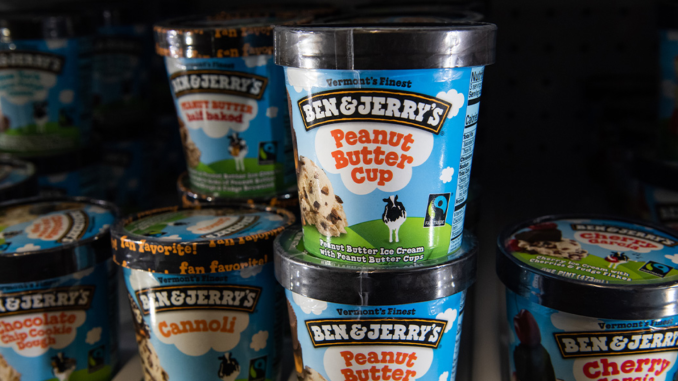
Ben & Jerry’s customers are calling for a Bud Light-style boycott of the ice cream brand after it blasted the U.S. as existing “on stolen land” this week.
The company’s official Twitter account called on customers to commit to “returning” indigenous land and said they should “start with Mount Rushmore.” Social media users expressed outrage at the timing of the statement, which landed on Independence Day.
“This 4th of July, it’s high time we recognize that the US exists on stolen Indigenous land and commit to returning it,” Ben & Jerry’s wrote on its Twitter account, linking to a blog post on the topic.
“Ah, the Fourth of July. Who doesn’t love a good parade, some tasty barbecue, and a stirring fireworks display?” the company wrote. “The only problem with all that, though, is that it can distract from an essential truth about this nation’s birth: The US was founded on stolen Indigenous land.
“This year, let’s commit to returning it. Here’s why we need to start with Mount Rushmore.”
The online backlash was near instantaneous, with many users calling for a boycott of the brand.
Jeremy Redfern, press secretary for Florida Gov. Ron DeSantis, responded simply, “No it doesn’t,” to the claim the U.S. exists on stolen land.
“Make @benndjerrys Bud Light again,” singer-songwriter John Rich wrote.
“Long overdue for the Bud Light treatment. You hate the country, fine. We won’t buy your product. All good,” another user responded.
“I look forward to the virtue signaling Ben & Jerry’s returning their factory’s land to the Abenaki and Mohican Native Americans that have lived in Vermont for 10,000 years,” another user said.
In June, Ben & Jerry’s announced it will no longer pay to advertise on Twitter, blaming what it says is a rise in “hate speech” on the platform since Elon Musk took it over.
In a blog post, the company said it watched the changes at Twitter since Musk bought the social media giant last fall “with great concern,” writing that “hate speech is up dramatically while content moderation has become all but non-existent.”
In 2021, the company also faced boycotts from consumers in the U.S. after it said it would no longer sell its ice cream in Israel’s “Occupied Palestinian Territory,” referring to the West Bank and Gaza Strip.
* Article From: Fox Business